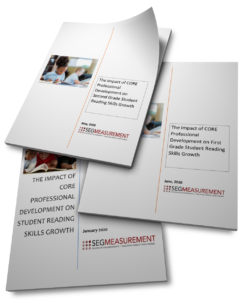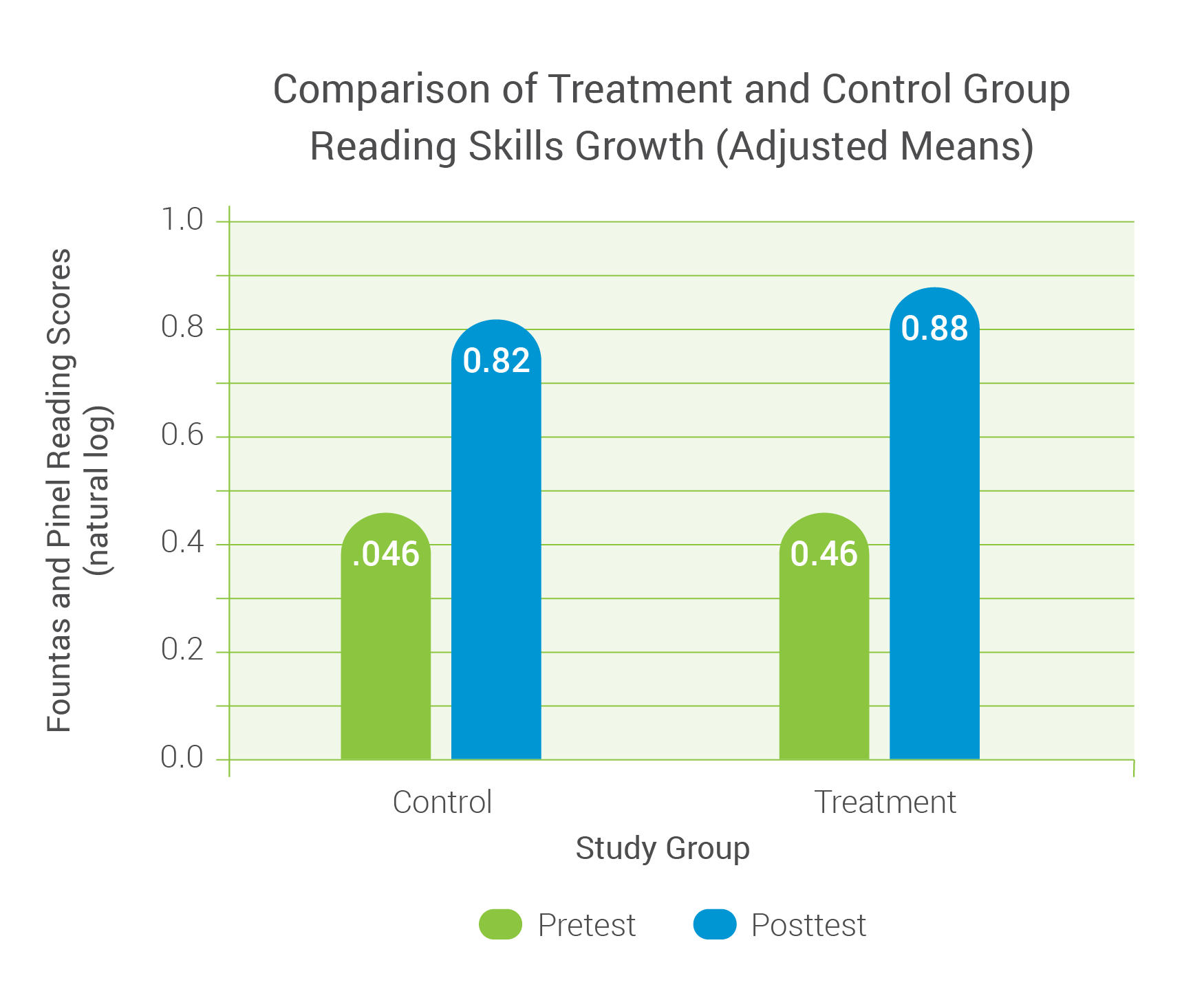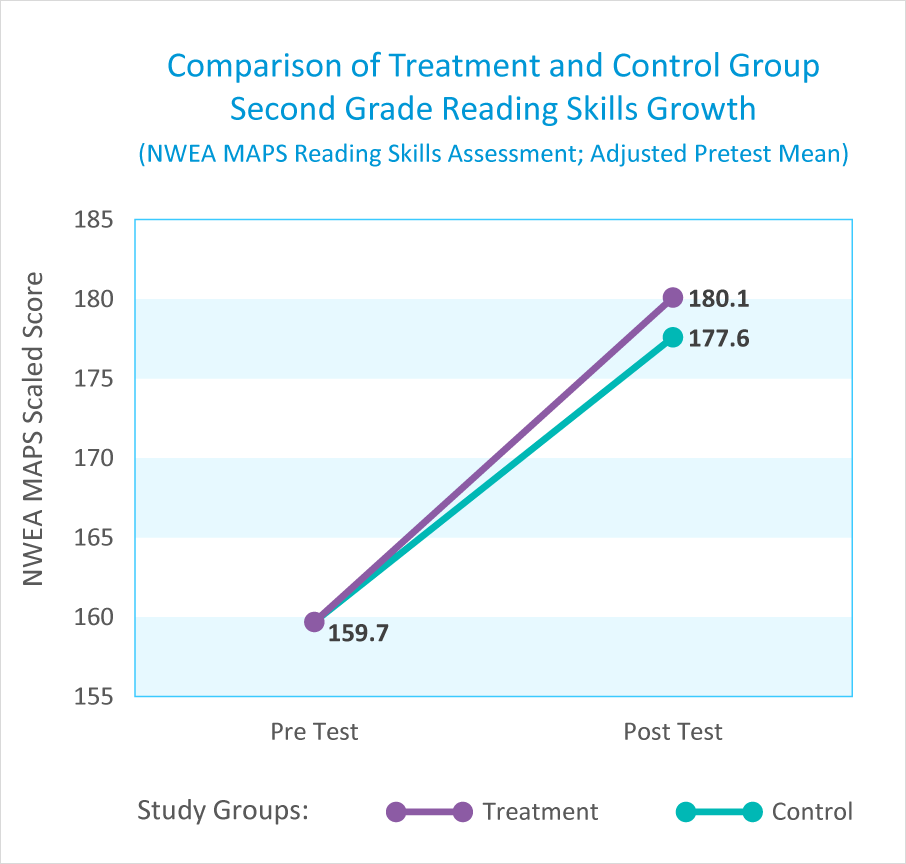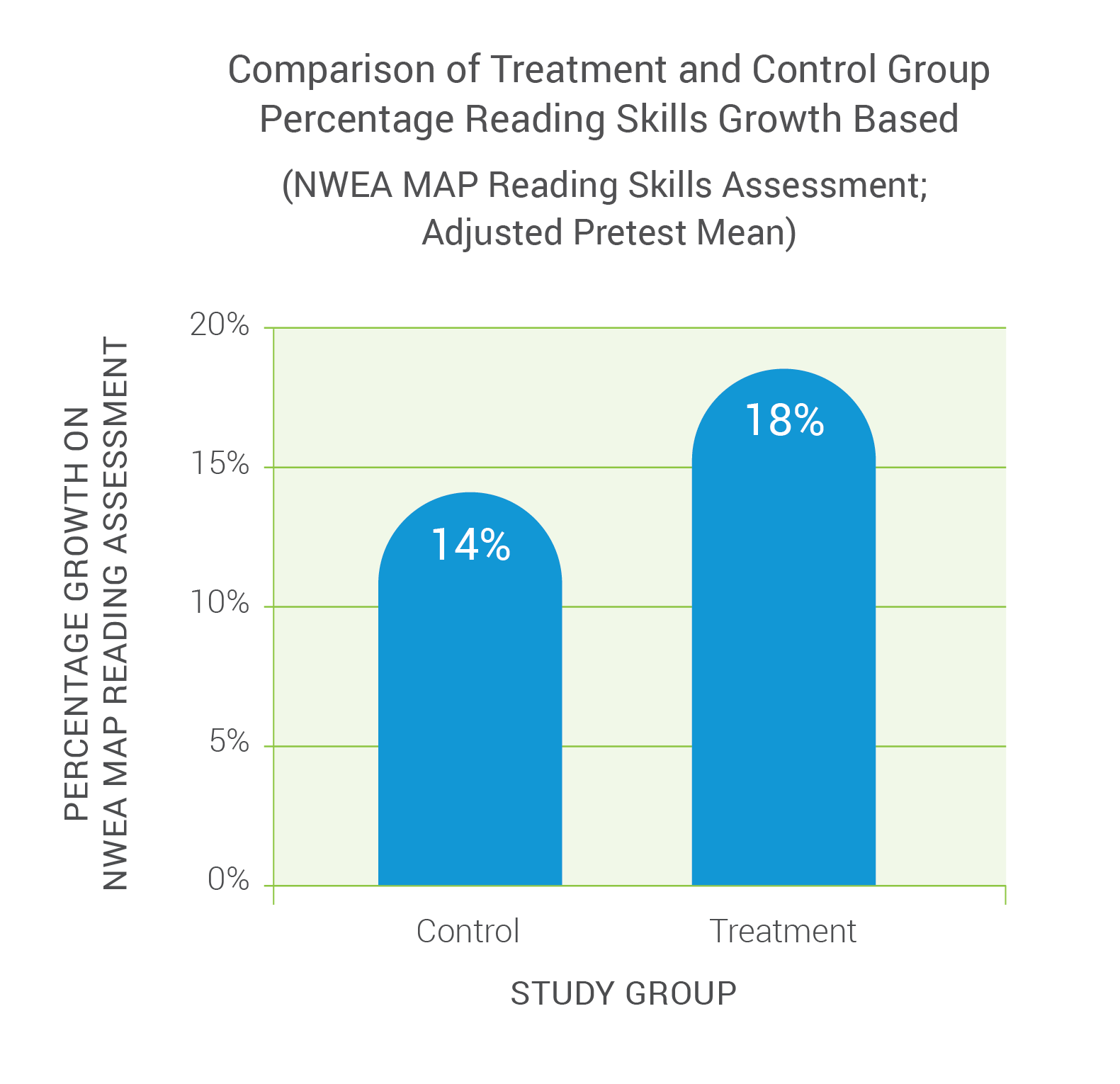Third-Party Studies Find that CORE Professional Development Leads to Gains in Reading

For several years, CORE provided professional development and technical assistance to elementary teachers and administrators in Pajaro Valley Unified School District implementing, in addition to their broader English Language Arts instruction, the Systematic Instruction in Phonological Awareness, Phonics and Sight words (SIPPS) reading foundational skills program.
SEG Measurement, a third-party research firm, has conducted three studies that looked at the reading performance of students in classrooms with teachers who participated in CORE professional development. The studies were designed to meet the requirements of the Every Student Succeeds Act (ESSA) guidance for Moderate Evidence (U.S. Department of Education, 2016). While many factors certainly contribute to student achievement, (e.g. curriculum and instruction) these studies demonstrate that the professional development provided by CORE made a difference in student achievement. The third-grade study was peer reviewed and studies of the other two grades utilized the same methodology.
First Grade Study
The reading performance of approximately 475 first grade students in eight schools where teachers had participated in CORE professional development was analyzed. These 475 students were matched based on multiple characteristics to an additional group of 475 students whose teachers did not receive training and coaching from CORE to create a control group.
Students in classes with teachers participating in CORE professional development showed significantly greater growth in reading skills than did students in classes with teachers who did not receive CORE professional development.
Student reading skills were measured using Fountas and Pinnell’s Reading Level Assessment at the beginning of the school year (pretest) and at the end of the school year (posttest). These results were then converted through logarithmic transformations to assure a normal distribution. SEG Measurement found that the control group mean reading posttest score was .82 while the mean reading posttest score for the treatment group was .88, or about a fifth of a standard deviation more growth in reading skills. This effect size, in the context of providing professional development, is quite impressive.

Second Grade Study
The reading performance of 450 second grade students in eight classrooms whose teachers participated in CORE professional development during the 2018-19 school was compared to 450 students whose teachers did not learn from CORE. The study, conducted by SEG Measurement, a third-party research firm, found that students in the classrooms with teachers who took part in CORE professional learning showed significantly greater growth in reading skills than did students in classes with teachers who did not receive support from CORE.
SEG Measurement found an effect size for the CORE professional development of .17, or about a fifth of a standard deviation. This effect size, in the context of providing professional development is quite impressive.

Third Grade Study
SEG Measurement also looked at the reading performance of 364 third grade students. 182 students were in the treatment group whose teachers participated in CORE professional development during the 2017–18 school year. These 182 students were matched based on multiple characteristics to an additional 182 students to create a control group.
As with the first and second grade studies, students in classes with teachers participating in CORE professional learning showed significantly greater growth in reading skills than did students in classes with teachers who did not receive CORE professional learning.
This study was peer reviewed and presented at the November 2020 Innovate Learning Summit.

